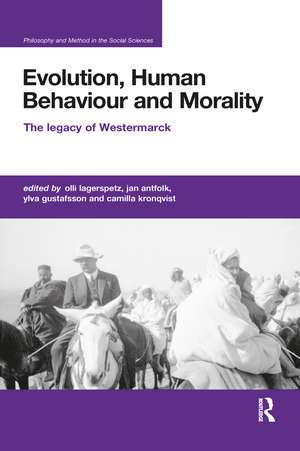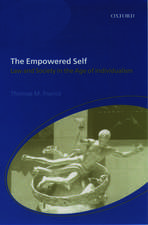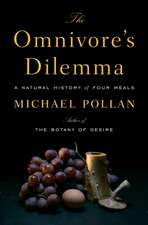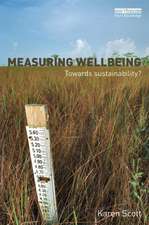Evolution, Human Behaviour and Morality: The Legacy of Westermarck: Philosophy and Method in the Social Sciences
Editat de Olli Lagerspetz, Jan Antfolk, Ylva Gustafsson, Camilla Kronqvisten Limba Engleză Paperback – 30 iun 2020
Questioning the extent to which current debates on the relationship between biology and morality are similar to those in which Westermarck himself was involved, the authors ask what can be learnt from his arguments and from the criticism that he encountered. Drawing on Westermarck's manuscripts and papers as well as his published work, the authors show the importance of situating debates, whether modern or classical, in their correct methodological and philosophical context.
This volume is a rigorous assessment of the ways in which morality is connected with human biological nature. It plays close attention to the development of debates in this field and will appeal to scholars of sociology, anthropology and philosophy.
| Toate formatele și edițiile | Preț | Express |
|---|---|---|
| Paperback (1) | 259.98 lei 6-8 săpt. | |
| Taylor & Francis – 30 iun 2020 | 259.98 lei 6-8 săpt. | |
| Hardback (1) | 820.32 lei 6-8 săpt. | |
| Taylor & Francis – 24 aug 2016 | 820.32 lei 6-8 săpt. |
Preț: 259.98 lei
Preț vechi: 326.49 lei
-20% Nou
Puncte Express: 390
Preț estimativ în valută:
49.75€ • 54.02$ • 41.79£
49.75€ • 54.02$ • 41.79£
Carte tipărită la comandă
Livrare economică 22 aprilie-06 mai
Preluare comenzi: 021 569.72.76
Specificații
ISBN-13: 9780367596156
ISBN-10: 0367596156
Pagini: 250
Dimensiuni: 156 x 234 mm
Greutate: 0.45 kg
Ediția:1
Editura: Taylor & Francis
Colecția Routledge
Seria Philosophy and Method in the Social Sciences
Locul publicării:Oxford, United Kingdom
ISBN-10: 0367596156
Pagini: 250
Dimensiuni: 156 x 234 mm
Greutate: 0.45 kg
Ediția:1
Editura: Taylor & Francis
Colecția Routledge
Seria Philosophy and Method in the Social Sciences
Locul publicării:Oxford, United Kingdom
Cuprins
1. Introduction: Westermarck and Modern Evolutionary Approaches to Morality
Part 1: Westermarck and the Emergence of 20th Century Social Anthropology
2. Westermarck and the Emergence of 20th Century Social Anthropology: Three Main Challenges
3. Westermarck, Malinowski and the 'Wild Things': At the Interface between Anthropology, Sexology and Psychoanalysis
4. The Sensitiveness of the Holy: Westermarck and Durkheim on Religion and Society
5. Westermarck, the Evolutionists and the Question of Context
Part 2: Westermarck as a Precursor of Evolutionary Psychology
6. Westermarck as a Precursor of Evolutionary Psychology: The Nature and Nurture of Evolutionary Explanations
7. Itemising Westermarck's Hypothesis: The Assumptions Embedded in Westermarck's Explanation of Human Incest Avoidanc
8. The Westermarck Thesis as a Thinking Tool for Sociobiology
Part 3: The Emotional Origins of Morality
9. The Emotional Origins of Morality: Methodological Issues
10. The Evolution of Westermarck's Theory of Moral Emotions
11. Westermarck and Moore on the Source of Morality
12. Emotions and Moral Relativism: Prinz and Westermarck
Part 4: Evolutionary Psychology of Morality: Critical Perspectives
13. Critical Perspectives on Evolutionary Psychology and Morality
14. Why Altruism May Not be the Right Concept for Understanding Morality
15. Westermarck, Sympathy and Natural Selection
16. Darwinian Conservatives and Westermarck's Ethics: A Political Dimension of the Late 20th Century Westermarckian Renaissance
Part 1: Westermarck and the Emergence of 20th Century Social Anthropology
2. Westermarck and the Emergence of 20th Century Social Anthropology: Three Main Challenges
3. Westermarck, Malinowski and the 'Wild Things': At the Interface between Anthropology, Sexology and Psychoanalysis
4. The Sensitiveness of the Holy: Westermarck and Durkheim on Religion and Society
5. Westermarck, the Evolutionists and the Question of Context
Part 2: Westermarck as a Precursor of Evolutionary Psychology
6. Westermarck as a Precursor of Evolutionary Psychology: The Nature and Nurture of Evolutionary Explanations
7. Itemising Westermarck's Hypothesis: The Assumptions Embedded in Westermarck's Explanation of Human Incest Avoidanc
8. The Westermarck Thesis as a Thinking Tool for Sociobiology
Part 3: The Emotional Origins of Morality
9. The Emotional Origins of Morality: Methodological Issues
10. The Evolution of Westermarck's Theory of Moral Emotions
11. Westermarck and Moore on the Source of Morality
12. Emotions and Moral Relativism: Prinz and Westermarck
Part 4: Evolutionary Psychology of Morality: Critical Perspectives
13. Critical Perspectives on Evolutionary Psychology and Morality
14. Why Altruism May Not be the Right Concept for Understanding Morality
15. Westermarck, Sympathy and Natural Selection
16. Darwinian Conservatives and Westermarck's Ethics: A Political Dimension of the Late 20th Century Westermarckian Renaissance
Notă biografică
Olli Lagerspetz is Senior Lecturer in Philosophy at Åbo Akademi University, Finland. He is the author of Trust, Ethics and Human Reason and co-author of Edward Westermarck: Intellectual Networks, Philosophy and Social Anthropology.
Jan Antfolk is a postdoctoral researcher in the Department of Psychology at Åbo Akademi University, Finland.
Ylva Gustafsson is a postdoctoral researcher in the Department of Philosophy at Åbo Akademi University, Finland.
Camilla Kronqvist is a postdoctoral researcher in the Department of Philosophy at Åbo Akademi University, Finland.
Recenzii
'This book is an important contribution to the revival of interest in Edward Westermarck, one of the greatest but most overlooked of the classical sociologists. Most discussions of Westermarck focus on his now celebrated theory of incest avoidance, but this volume goes beyond that to consider him as a forerunner of evolutionary psychology and his Darwinian understanding of the evolution of morality. In that regard it is especially welcome.' Stephen K. Sanderson, University of California, Riverside, USA
Descriere
This book highlights the recent re-emergence of Edward Westermarck's work in modern approaches to morality and altruism, examining his importance as one of the founding fathers of anthropology and as a moral relativist, who identified our moral feelings with biologically-evolved retributive emotions.
Questioning
Questioning





















